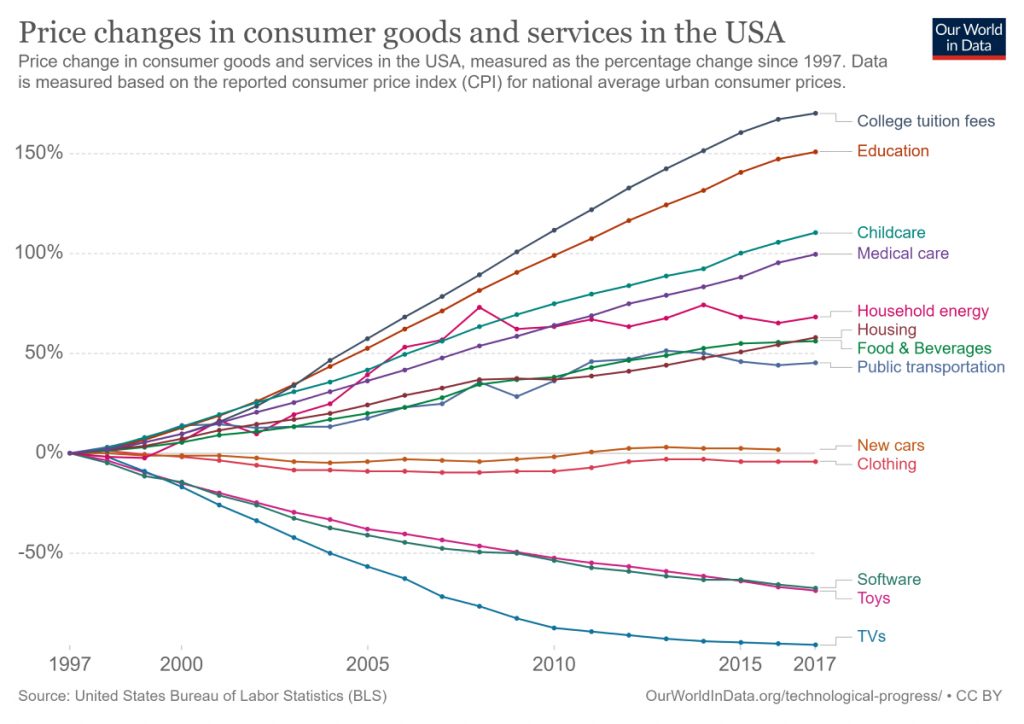
- Author: Albert Bielinko
- Posted: August 9, 2020
The Tectonic Shift in the Education and Upskilling Market
By Albert Bielinko, who invests with Telstra Ventures
The education sector is facing a tectonic shift, and the technology upskilling and training market is set to explode. CFOs and other C-level executives have repeatedly identified a lack of digital skills as one of the biggest issues facing IT today. Digital skills will continue to be critical regardless of the shape of the economic recovery post-COVID-19. Indeed, technology has arguably proven to be the most resilient sector of the global economy during the pandemic, and COVID-19 will ultimately be a long-term accelerant for the adoption of many cloud-based digital technologies, like software and e-commerce.
The need to reinvent education
While technology has fundamentally changed almost every element of our lives, how we learn looks almost identical to how it looked 50 years ago. Interestingly, only 7 top 100 colleges were founded in the last 100 years and none in the last 50 years. Test scores, teachers’ salaries and earning potential for degree holders have generally remained flat for decades. Meanwhile, the cost of college tuition and education has risen faster than any other bucket of consumer spending over the last 20 years, as shown by the chart below. U.S. student debt has skyrocketed to a whopping $1.5 trillion. That is a hard pill to swallow!

In 2018, Harvard Business School professor Clayton Christensen predicted that “50% of the 4,000 colleges and universities in the U.S. will be bankrupt in 10 to 15 years.” He concluded that online education would become a more cost-effective way for students to receive an education, undermining the business models of traditional institutions and running them out of business. The U.S. Department of Education and Moody’s Investors Service both predict that in the coming years, closure rates of small colleges and universities will triple, and mergers will double.
Even before the COVID-19 pandemic, McKinsey estimated that 14% of the global workforce – as many as a staggering 375 million workers – may need to switch occupations and acquire new skills by 2030 because of the impact of automation and artificial intelligence. This is also not surprising given the average millennial will have 15 jobs over their career, and technology is changing very quickly, such that people will need to reinvent themselves professionally. The pandemic has put further pressure on workers to adapt to radically changing circumstances, and lifelong learning plays a vital role. The education sector needs to morph from a generally expensive and inflexible industry to meet this demand.
The closing of in-person campuses
COVID-19 has also forced many educational institutions to close their campuses and move their in-person lectures online – often as a carbon copy of the lesson but over a video link. This has revealed to many families for the first time, exactly what learners are paying through the nose for. Alternative online models are gaining significant traction at a time when a record 18.1 million Americans have filed continuing unemployment claims according to the U.S. Department of Labor. Many people will likely see significant benefits in using the time to invest in digital skills education via online upskilling platforms.
Ongoing lockdowns in many parts of the world are also forcing the acceleration to online learning. A recent national survey by Art & Science Group found that 44% of high school students were “potentially more interested in taking an online course as part of their post-secondary educational experience.” One in six college-bound respondents to the survey “appear to be near the point of giving up on the idea of attending a four-year college or university as a fulltime student in the fall.”
Additionally, two-thirds of graduating high school seniors were concerned that they might have to change their first-choice school due to the COVID-19 outbreak. Of those students, more than 20% specifically said that they might not be able to attend their first-choice school “because their family may no longer be able to afford it.”
Despite this, as of July 8, 2020, 59% of American colleges and universities were expected to welcome students back to in-person campuses, according to The Chronicle of Higher Education, which tracks 1,110 colleges’ and universities’ fall enrollment plans. However, in many states this date has been shifted to later in August. A further 26% are proposing a hybrid model. In early July 2020, Harvard University announced that it would hold all undergraduate classes online this fall and only invite 40% of students to reside at its campus. It also stated it would raise its total billed costs this year from $68,607 to $72,356. These opposing statements create a great environment to enable people to experiment with new approaches to learning and development.
MOOCs are not the solution
Massive Open Online Courses (MOOCs), which emerged in 2012, have grown significantly but still face issues when it comes to closing the technology skills gap. MOOCs typically only have single digit percentage completion rates as nothing is creating or ensuring real accountability to complete the courses. According to MIT researchers, only 3.13% of MIT and Harvard University MOOC participants completed their courses in 2017-2018, down from nearly 6% in 2014-2015. Most learners struggle to motivate themselves to push through the challenge (and opportunity!) to truly learn new skills. It is also hard for employers to know if learners really engaged with the material and took in the concepts. MOOCs alone also do not provide the networking opportunities that education has historically offered. Truly transformational learning greatly benefits from human support and interaction – content alone is only a start.
Human support is vital for true skills development
To be genuinely effective at upskilling, online learning must combine smart technology that supports learner personalization, robust course content, and support from peers and industry mentors. Springboard, an innovative company backed by Telstra Ventures, is an example of a remote only asynchronous school where students take 6-9 month immersive courses to learn digital skills. Human-led support can be wide-ranging from one-on-one video and voice calls with industry mentors, to career services like job support and career coaching calls, and even community forums with peers and alumni providing online and offline support.
“Combining the best online course materials with human-led support enables people to upskill themselves and future proof their careers for the digital age,” said Gautam Tambay, Co-founder and CEO of Springboard. “Human support is wide-ranging and includes one-on-one personalized calls with industry expert mentors, to career services like job support and career coaching calls, and even community forums with peers and alumni providing online and offline support.”
Online models built from the ground up for the digital age that are accessible from anywhere will be an important support mechanism in upskilling large groups of people to complete jobs we have not even thought of yet. Springboard has had tremendous success placing people into well-paying jobs at the world’s largest companies. This alumni network really highlights how powerful new models of digital and technology-centric education can be.








